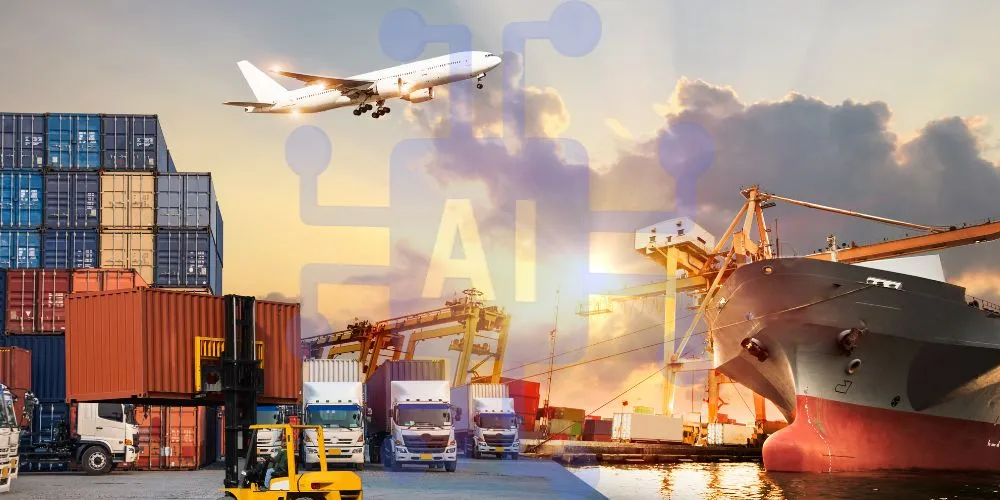Artificial Intelligence (AI) has become a game-changer in the logistics industry, revolutionizing how goods are transported, warehoused, and delivered. From optimizing supply chain processes to enhancing route planning and predictive maintenance, AI is reshaping the logistics landscape. Integrating AI technologies improves operational efficiency and introduces agility and intelligence, propelling the logistics sector into the future.
Intelligent Supply Chains
AI in Logistics redefines supply chain management by introducing intelligence into every process stage. Predictive analytics and machine learning algorithms analyze vast datasets to provide insights into demand forecasting, inventory management, and supplier relationships. This intelligent approach enables logistics companies to optimize stock levels, reduce carrying costs, and respond dynamically to market fluctuations, creating more resilient and agile supply chains.
Route Optimization and Predictive Analysis
In logistics, route optimization is critical to cost and time efficiency. AI algorithms analyze real-time data, taking into account traffic patterns, weather conditions, and delivery schedules. AI in logistics enables the creation of optimal routes, minimizing transit times and fuel consumption. Additionally, predictive analysis helps anticipate potential disruptions, enabling logistics companies to address issues and maintain seamless operations proactively.
Warehouse Automation
AI-driven technologies such as robotics and computer vision are transforming warehouses into hubs of precision and speed. Automated guided vehicles (AGVs) and robots collaborate seamlessly, streamlining tasks like picking, packing, and sorting. Computer vision systems enhance inventory management by providing real-time visibility and accurate tracking. The result is not only increased efficiency but also reduced errors and operational costs.
Predictive Maintenance
AI’s predictive capabilities extend to equipment maintenance, a crucial aspect of logistics operations. By analyzing sensor data and historical performance, AI in Logistics can predict when machinery and vehicles will likely require maintenance. This proactive approach minimizes downtime, reduces the risk of equipment failures, and extends the lifespan of assets. Logistics companies adopting predictive maintenance strategies benefit from increased operational continuity and cost savings.
Conclusion
The integration of AI in logistics marks a transformative shift that goes beyond operational efficiency. It introduces intelligence, adaptability, and foresight into every facet of the logistics chain. From intelligent supply chains and route optimization to warehouse automation and predictive maintenance, AI positions logistics companies to navigate the complexities of a rapidly changing world. As technology continues to evolve, the strategic adoption of AI in logistics becomes a competitive advantage and a prerequisite for those aiming to lead in the future of transportation and supply chain management.





